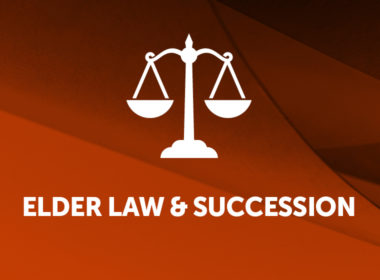Key decisions
-
Re Thomas [2023] VSC 344 (Revocation)
-
Application of Higgins [2023] NSWSC 689 (Indigenous intestacy order)
-
Re Gardner (dec’d) [2023] QSC 142 (Probate of a copy of the will)
-
Barnes v Pope in his capacity as administrator of the Estate of Lynette Margaret Hough [2023] NSWSC 685 (Will construction)
-
Application of Paul James Edwards: Estate of the Late John McGregor Edwards [2023] NSWSC 714 (Will construction)
Revocation due to state of will
Howard Thomas made a will in 2011. Two months after his death, the will was found at his home with black ink largely blanking out the names of the executors and beneficiaries. No names were added. The issue for determination in Re Thomas [2023] VSC 344 (Moore J) was whether the will was revoked in accordance with the Victorian equivalent of s 11(1)(f) of the Succession Act 2006 (NSW). That section provides that a will may be revoked by the testator ‘writing on the will … in such a manner that the Court is satisfied, from the state of the will, that the testator intended to revoke it’ (at [1]).
The Court was ‘satisfied from the state of the will that the deceased intended to revoke it. The markings effectively obliterate the names of the executors and beneficiaries, on its face stripping the will of its essential elements. The subject matter of the markings and their emphatic expression evince an intention and purpose on the part of the deceased to revoke the will in its entirety’ (at [16]).
There was no direct evidence that the testator was the author of the markings on the will. However, the Court was satisfied from the circumstances in which the will was found, and the chain of custody of the document before its production to the Court, that the markings were made by the testator (at [22]–[23]). There was no evidence about when the markings were made but the Court was satisfied that the testator had the testamentary capacity needed to revoke the will at all times before his death (at [25]).


